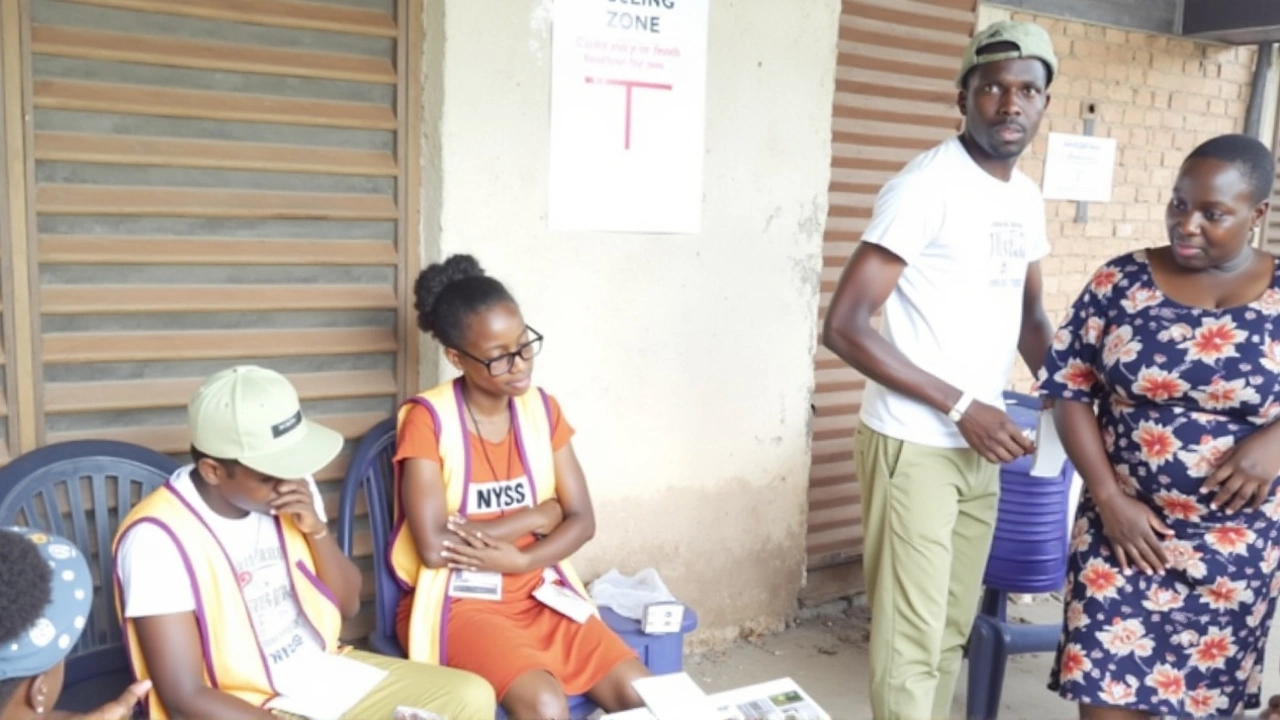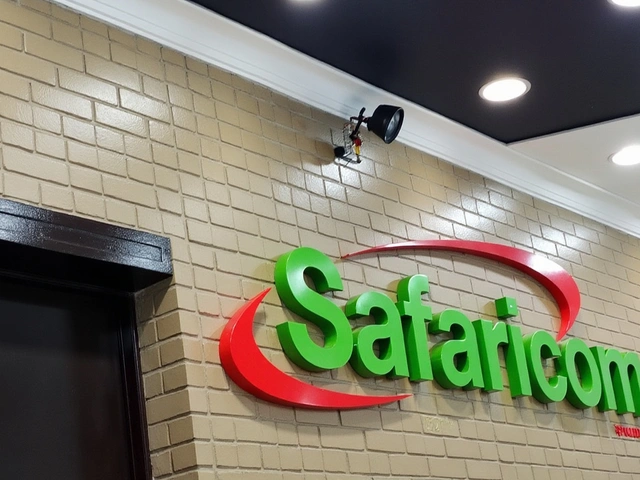Controversy Surrounds Ogun Local Elections: Calls for Cancellation Amid Allegations of Rigging

Tensions Rise Over Ogun State's Local Government Elections
The political atmosphere in Ogun State has reached a boiling point following the recent local government elections, which have been described by various opposition parties as rife with irregularities and skewed results. Central to the controversy is the decisive victory claimed by the All Progressives Congress (APC), which reportedly swept all 20 chairmanship seats and the full complement of 236 councillorship wards. This sweeping success has not been without its detractors, with the Labour Party (LP) at the forefront of accusations of foul play and rigging.
The Labour Party's Stance: Allegations of Electoral Misconduct
The Labour Party, buoyed by its state chapter's leadership, has been vociferous in its denunciation of the manner in which the elections were conducted. Lookman Jagun, the LP state chairman, has emerged as a prominent voice calling for the immediate cancellation of the election results. He highlights a host of reported irregularities, including the late arrival of electoral materials and officials, inadequate supply of ballot papers, and several incidents where voters allegedly cast their ballots using business cards. These actions, Jagun claims, starkly undermine the integrity of the electoral process, which should be the bedrock of democracy.
The call for cancellation goes beyond rhetoric. Jagun has pledged that the Labour Party will pursue judicial remedies should the Ogun State Independent Electoral Commission (OGSIEC) fail to heed these calls and annul the elections. With a firm stance, he has indicated that this would include taking the matter to court, showcasing the party's commitment to contest the validity of the results through legal means. Such actions underscore the seriousness with which the LP views the electoral process and its outcomes in Ogun State.
Voices of Dissent: Alignment with Other Political Entities
While the Labour Party may be the most vocal, they are not alone in their condemnation. Other political entities, notably the New Nigeria Peoples Party (NNPP) and the Peoples Democratic Party (PDP), have expressed similar concerns and criticisms about the election proceedings. These parties have united in describing the situation as chaotic, with specific mention of aggressive tactics allegedly employed by APC thugs who purportedly targeted members of opposition parties. Dr. Sunday Solarin, the PDP secretary, has been particularly pointed in his accusations, condemning these acts of alleged political intimidation during the exercise of electoral duties.
Demand for Accountability and Transparency
The NNPP, represented by its chairman, Femi Aina, has called on the state’s legislative body to investigate the situation thoroughly. Aina has demanded that the state House of Assembly summon officials from OGSIEC to account for the perceived disorder and mismanagement observed on election day. This demand signals a call for transparency and responsibility from OGSIEC, which is pivotal in maintaining trust in Nigeria’s democratic institutions. Aina’s appeals stress that such inquiries are necessary to understand the purported failures in the electoral process and prevent future recurrences.
OGSIEC's Position and Declared Results
Despite the wave of opposition, OGSIEC has proceeded to declare the APC as the winner of the elections. Babatunde Osibodu, the OGSIEC chairman, reported that a total of 613,156 votes were cast during the chairmanship elections across the state’s 20 local government areas. Osibodu stands by the process, asserting the legitimacy of the results in the face of mounting criticism. The electoral body's announcement has seemingly done little to assuage the concerns of the opposition, adding to the proliferating tension.
The Path Forward: A Call for Justice and Integrity
This contentious scenario places Ogun State at a crossroads, where the integrity of the electoral process is under intense scrutiny. The distinction between lawful, democratic proceedings and the perceived electoral misconduct as outlined by the opposition remains stark. As the Labour Party and other groups vow to remain unsatisfied with the declared results, a critical examination of the electoral framework and practices in Ogun State is looming.
Ensuring fair play and transparency in electoral exercises is paramount to sustaining democracy not just in Ogun State, but across Nigeria. The calls for cancellation and subsequent legal proceedings may serve as a pivotal test of the robustness of Nigeria's legal and political systems in addressing electoral grievances. For Ogun State residents, the resolution of these disputes could have a lasting impact on the trust in democratic processes and the future political landscape of the region.
Conclusion: Awaiting Resolution
The clamor surrounding the elections in Ogun State signifies a deeper yearning for accountability and electoral integrity. As political actors and citizens alike anticipate the next developments, it is evident that the handling of these grievances could set critical precedents for future elections within the state and Nigeria at large. For now, the state stands poised, awaiting whether legal interventions or electoral reforms will emerge as the path to resolving what is sure to be a defining moment in Ogun's political chronicles.






Sohila Sandher
November 19, 2024 AT 08:06Keep pushin, we gotta stay hopeful for fair play!
Anthony Morgano
November 20, 2024 AT 11:53It’s wild how quickly things can spiral when the electoral board seems to ignore basic logistics. The reports about missing ballot papers and late arrivals of officials really undermine confidence, especially when the APC sweeps every seat. Transparency is the only cure for this mess 😊. Folks deserve a process that respects every vote, not one that looks like a scripted drama. Let’s hope the courts actually hear the grievances.
Holly B.
November 21, 2024 AT 15:40While I appreciate the urgency of the concerns raised by the opposition the facts presented need careful verification especially regarding the alleged use of business cards as ballots the OGSIEC has a duty to provide clear evidence of any irregularities this will foster trust among the electorate
Lauren Markovic
November 22, 2024 AT 19:26Having followed Ogun’s local elections for a few cycles I can say the logistical hiccups aren’t new but the scale this time is unprecedented. In 2019 there were similar complaints about delayed materials but the APC still won comfortably. If you look at voter turnout numbers they actually dipped by about 4% compared to the previous local polls which might suggest disillusionment. The key now is whether the legal challenges can force a thorough audit – that’s the only way to restore credibility 😎.
Kathryn Susan Jenifer
November 23, 2024 AT 23:13Oh, the drama! The saga of Ogun’s elections reads like a script for a soap opera where the villainous APC thugs storm the stage and the heroic Labour Party cries “cancel!” at the top of their lungs. The mere suggestion that business cards could substitute for ballots is pure theatrical gold. One can only imagine the backstage whispers about “rigged outcomes” as the curtains close on another unremarkable victory for the incumbents. Truly, it’s a masterpiece of political theater.
Jordan Bowens
November 25, 2024 AT 03:00Honestly this whole rigging talk feels like a tired mixtape of old grievances, same old chorus, fresh beats of accusations. The opposition’s rant is loud but the substance? Meh.
Kimberly Hickam
November 26, 2024 AT 06:46When one examines the current electoral turbulence in Ogun through the lens of democratic theory, one confronts the perennial tension between procedural fidelity and substantive representation. The apparatus of the state, embodied by OGSIEC, is purportedly designed to act as a neutral arbiter, yet the allegations of missing ballots and improvised voting instruments betray a breach in the procedural contract. In a healthy polity, the legitimacy of outcomes is derived not merely from the tally of votes but from the confidence that each citizen’s voice was accorded equal weight. The invocation of legal recourse by the Labour Party and its allies is, therefore, not an act of desperation but a manifestation of a deeper need for institutional rectitude. It is worth noting that the phenomenon of “business cards as ballots” is emblematic of a systemic failure to maintain the sanctity of the voting process. Historically, when electoral bodies have permitted such ad hoc measures, the resultant erosion of public trust has been both swift and irreversible. Moreover, the simultaneous claims of APC intimidation tactics amplify the perception that the playing field is anything but level. One must also consider the role of political culture: a society accustomed to patronage and coercion is less likely to tolerate blatant irregularities without protest. The legal frameworks governing local elections, while ostensibly robust, often suffer from ambiguous enforcement mechanisms that can be exploited by dominant parties. As such, the demands for a thorough investigation by the state legislature are not merely procedural niceties but essential safeguards against authoritarian drift. The judiciary, in turn, bears the heavy mantle of adjudicating these disputes with impartiality, lest it become complicit in legitimizing fraud. In sum, the Ogun episode is a microcosm of broader challenges confronting emerging democracies, where the veneer of competitive elections masks deeper structural deficiencies. The path forward must involve not only immediate remedial measures but also a long-term commitment to electoral reforms that embed transparency at every tier. Only then can the electorate reclaim confidence in a system that promises to serve them rather than subvert them. The stakes, therefore, extend far beyond the 20 chairmanship seats; they touch the very soul of Nigeria’s democratic aspirations.
Gift OLUWASANMI
November 27, 2024 AT 10:33Honestly, Kimberly’s lofty dissertation feels like a pretentious parade of buzzwords designed to sound profound while ignoring the gritty reality that an APC sweep, regardless of legal nitpicking, is a political fact. The electorate’s appetite for drama doesn’t equate to a rigged spectacle, and branding every mishap as “systemic failure” merely fuels conspiratorial hype.
Keith Craft
November 28, 2024 AT 14:20Ah, dear Gift, your flamboyant dismissal of the complexities at hand merely underscores the emotional void that surrounds this election. While you parade your disdain for “buzzwords,” you neglect the palpable fear felt by voters who witnessed irregularities and intimidation. The formal tone you mock is, in fact, the language of accountability-a language you seem unwilling to speak. Let us not reduce this discourse to petty sarcasm when the stakes involve the very legitimacy of our democratic institutions. In the grand tapestry of governance, every thread of dissent deserves a measured, solemn consideration.
Kara Withers
November 29, 2024 AT 18:06I appreciate the passionate perspectives shared here and would like to add a balanced view. While there are genuine concerns about procedural lapses, we should also acknowledge the effort of election officials who worked under tight timelines. Constructive dialogue and evidence‑based investigations will help all parties move forward without further polarizing the community.
boy george
November 30, 2024 AT 21:53Indeed, Kara’s call for calm is noted yet the minimalistic punctuation of your argument betrays a lack of urgency that this matter demands.
Cheryl Dixon
December 2, 2024 AT 01:40While I can respect the sentiment behind terseness, one might argue that reducing complex electoral grievances to neat, sparse statements risks oversimplification and neglects the nuanced philosophical underpinnings of democratic legitimacy.